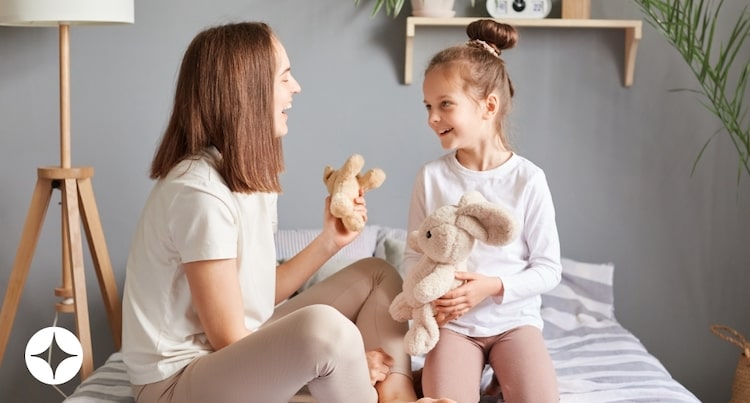
According to the Canadian Government, one in three adults in Canada have trouble going to sleep and staying asleep [1]. Inadequate sleep can have various causes, including diverse sleep disorders[2], such as sleep apnea or restless legs syndrome, an uncomfortable sleeping environment[3], use of stimulants[4], certain medications and a poor sleep routine. Excessive stress and anxiety can also adversely impact sleep quality.
Anxiety and Sleep Issues
Research indicates strong links between anxiety disorders and sleep issues[6]. Indeed, the definitions of some anxiety-related complaints include sleep problems such as nightmares and insomnia[7]. Scientists have found that one issue can lead to the other[8]; anxiety can contribute to sleep problems and vice versa.
Over 36% of Canadian adults who don't get sufficient sleep report chronic stress as compared to those who get adequate sleep [1]. A 2003 study found that approximately 24–36% of individuals with insomnia[9] also have anxiety.
Alongside problems sleeping, common symptoms of anxiety[10] include:
- Feeling tense, nervous, worried, fearful or restless
- Difficulties concentrating
- Feeling tired or weak
- Sweating
- Increased heart rate
- Rapid breathing
- Shaking
How Anxiety Impacts Sleep
Anxiety can make it difficult for those impacted to fall asleep. With fewer distractions, individuals may lay in bed with racing thoughts and mulling over problems. Uncomfortable anxiety symptoms, such as sweating and hyperventilating[11], can further hinder sleep. Anxiety can also cause a spike in adrenaline[12], which puts the body into high-alert fight-or-flight mode. Lack of sleep can raise cortisol levels[13], which can further increase anxiety[14], keeping sufferers stuck in a disrupted pattern.
People may wake in the middle of the night and further ruminate on their worries. Anxiety can cause vivid nightmares[15], which can disrupt sleep, cause lingering feelings of unease and increase anxiety. Falling back asleep after a nightmare can be more difficult for people with anxiety. Waking abruptly in the night[16] can also reduce the beneficial effects of sleep. Additionally, anxiety can worsen the impacts of sleep loss[17]. Some people may develop fears surrounding sleeping[18], such as worrying about getting enough sleep or being able to fall asleep, which usually exacerbate all issues even more.
How Comfort Items May Aid Sleep
Various studies show how sleeping with comfort items, such as weighted blankets[19], stuffed animals[20], soft pieces of fabric and, for infants, pacifiers[21] can help children sleep better. Certain familiar objects are comforting to children, providing a sense of calm and security. They can ease separation anxiety[22] when kids are alone at night and help them self-soothe. Comforters can be therapeutic, bringing a range of physical and mental benefits to users.
Much of the same scientific reasoning applies to adults[23], who can also gain support from sleeping with a comfort object. a UK survey, found that about one in three British adults[24] sleep with a stuffed toy and a 2013 study found that just holding a stuffed bear could help reduce existential fear in adults with low self-esteem [25].
For adults with anxiety, sleeping with comfort items can reduce brain arousal and increase relaxation, both of which are important for restful sleep. They can be beneficial as part of a soothing bedtime ritual, helping individuals disconnect from daily events and switch to a calm state. Hugging a soft toy, blanket or other comforter can lower cortisol levels[26] and reduce stress and anxiety[27]. Weighted blankets similarly simulate the sensation of being hugged[28], which can ease anxiety, while the pressure can reduce some of the unpleasant symptoms[29] associated with anxiety.
Grab your favorite childhood teddy bear, buy a weighted blanket or go shopping for stuffed animals; although it may feel childish, it might be worth giving comfort items a try at bedtime since they may assist in reducing your anxiety and help you get more quality sleep. Anyone experiencing ongoing sleep issues or anxiety should seek medical advice.
References
- Public Health Agency of Canada: Are Canadian adults getting enough sleep?
- Psychiatry.org: What are Sleep Disorders?
- National Library of Medicine: Environmental Determinants of Insufficient Sleep and Sleep Disorders: Implications for Population Health
- News-Medical.net: Stimulants and Sleep
- National Library of Medicine: Sleep and anxiety disorders
- National Heart, Lung, and Blood Institute: What Is Insomnia?
- Psycom: Anxiety and Sleep
- National Library of Medicine: Sleep and anxiety disorders
- Mayo Clinic: Anxiety disorders
- Johns Hopkins Medicine: Hyperventilation
- Mental Health America: What is Adrenaline?
- National Library of Medicine: Interactions between sleep, stress, and metabolism: From physiological to pathological conditions
- Mayo Clinic: Stress management
- Healthline: Anxiety Dreams Are a Thing — Here’s How to Cope
- Psychiatric Times: Insomnia Triggered by Nightmares: Evaluation and Treatment Options
- National Library of Medicine: Tired and Apprehensive: Anxiety Amplifies the Impact of Sleep Loss on Aversive Brain Anticipation
- Cleveland Clinic: Sleep Anxiety
- National Library of Medicine: Parents’ Experiences of Weighted Blankets’ Impact on Children with Attention-Deficit/Hyperactivity Disorder (ADHD) and Sleep Problems—A Qualitative Study
- National Library of Medicine: "My stuffed animals help me": the importance, barriers, and strategies for adequate sleep behaviors of school-age children and parents
- Mayo Clinic: Pacifiers: Are they good for your baby?
- Sage Journals: Children's Use of Transitional Objects during Daily Separations from Significant Caregivers
- International Collegiate Journal of Science: The Positives Of Plushies: Stuffed Animals Have Benefits For Children And Adults
- Metro: 1 in 3 British adults still sleeps with a soft toy
- ResearchGate: Embodied Terror Management: Interpersonal Touch Alleviates Existential Concerns Among Individuals With Low Self-Esteem
- National Library of Medicine: Huggable communication medium decreases cortisol levels
- IEEE.org: Investigating different stress-relief methods using Electroencephalogram (EEG)
- SLEEP: 1203 Worth The Weight: Weighted Blanket Improves Sleep And Increases Relaxation
- Penn Medicine: 4 Ways Weighted Blankets Can Actually Help You